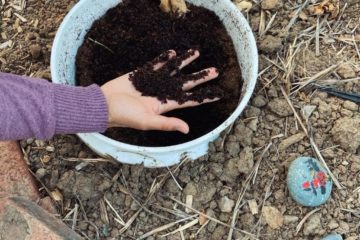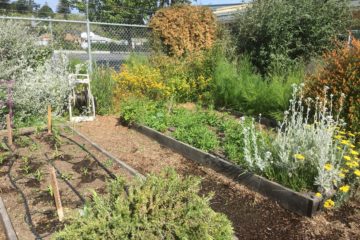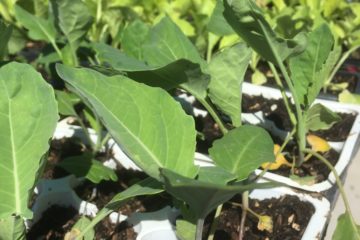Written by Cordy Plymale, Non-Profit Management Intern
Gardens are a great way to get fresh produce on your plate straight from your own backyard. However, it’s important to be conscientious of your gardening practices to ensure you are practicing techniques that are food safe. As delicious, satisfying, and nutritious fresh fruits and vegetables from your own garden are, it’s important to recognize the risks that come with them; namely, foodborne illnesses. When people consume products that are contaminated with pathogens, chemicals, or toxins they could potentially get a foodborne illness. This may sound a bit daunting, but don’t be discouraged! Luckily, there are simple prevention strategies you can utilize in your gardening activities so you can continue to enjoy safe and tasty produce.
Prevention strategies to increase food safety in your garden:
- Practice good personal hygiene: Our hands touch everything and consequently, can easily get contaminated. Make sure to wash your hands with clean, soapy water for 20 seconds before and after working in the garden to prevent the spread of pathogens. It’s also important to wear gloves when handling compost and manures. Finally, be sure to never work in the garden when you are feeling sick.
- Use clean soil and water: While most pathogens are killed when food is cooked, it’s more challenging to ensure this kind of safety in produce that is consumed raw. Thus, it’s important to make sure your soil is thoroughly processed. It’s also vital that the water and irrigation systems used in your garden are sanitary. If you wouldn’t drink the water, then you should not use it in your garden.
- Make sure your tools are clean: If your tools are going to touch edible produce, they should be sanitary. This includes anything from shovels, to gloves, boots, rakes, and everything in between. Tools should be cleaned in an area away from your garden after each use.
- Use safe compost and fertilizer: Manure may be used in compost, however it should not be raw as this poses an E. coli (Escherichia coli) risk, which is a type of bacteria. Compost should also be mixed regularly and blocked off in a way such that animals cannot reach it. If fertilizer is necessary, make sure to read the instructions thoroughly before using and follow safety guidelines.
- Store your harvest responsibly: Wash your harvested produce thoroughly with clean water, being sure to remove soil and other contaminants. It’s also important to cover and refrigerate your produce if you are not consuming it immediately. Finally, be aware of when your fruits and vegetables are no longer good to eat. Produce life varies, so be sure to educate yourself on how long you can safely store your unique produce.
Following these prevention strategies will help reduce the risk of contaminating your precious produce so you can enjoy it worry free!

References:
Geisel, P. M., & Seaver, D. C. (2009). Food Safety in Your Home Vegetable Garden. University of California Master Gardener. https://anrcatalog.ucanr.edu/pdf/8366.pdf
Nutrition, C. F. F. S. a. A. (2023). Foodborne Pathogens. U.S. Food And Drug Administration. https://www.fda.gov/food/outbreaks-foodborne-illness/foodborne-pathogens#:~:text=Foodborne%20illness%20occurs%20when%20people,weakened%20immune%20system%20and%20age.
Nwadike, L. (2019). Garden to Plate: Food Safety for School and Community Gardens. Kansas State University Family and Consumer Sciences. https://bookstore.ksre.ksu.edu/pubs/mf3152.pdf
Image
Quarer, G. (2022). How to Live Off Your Garden All Year Round. Homestead.org. https://www.homestead.org/gardening/how-to-live-off-your-garden-all-year-round/



0 Comments